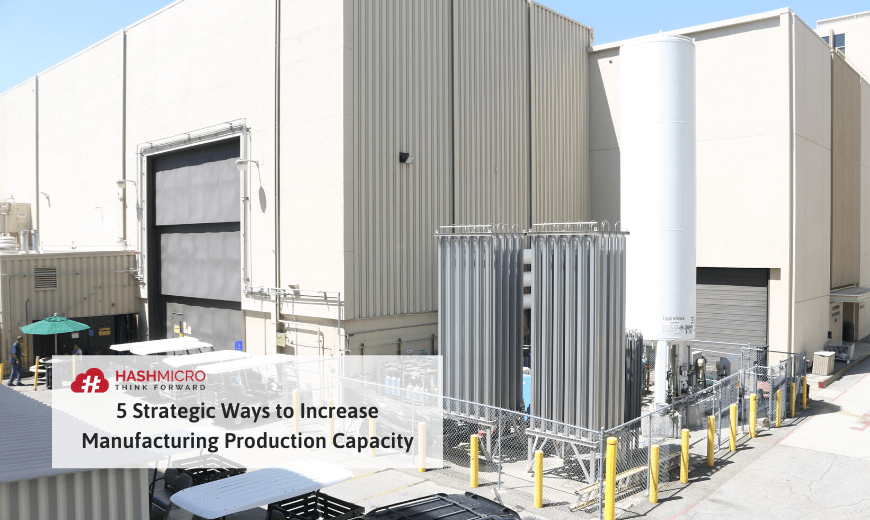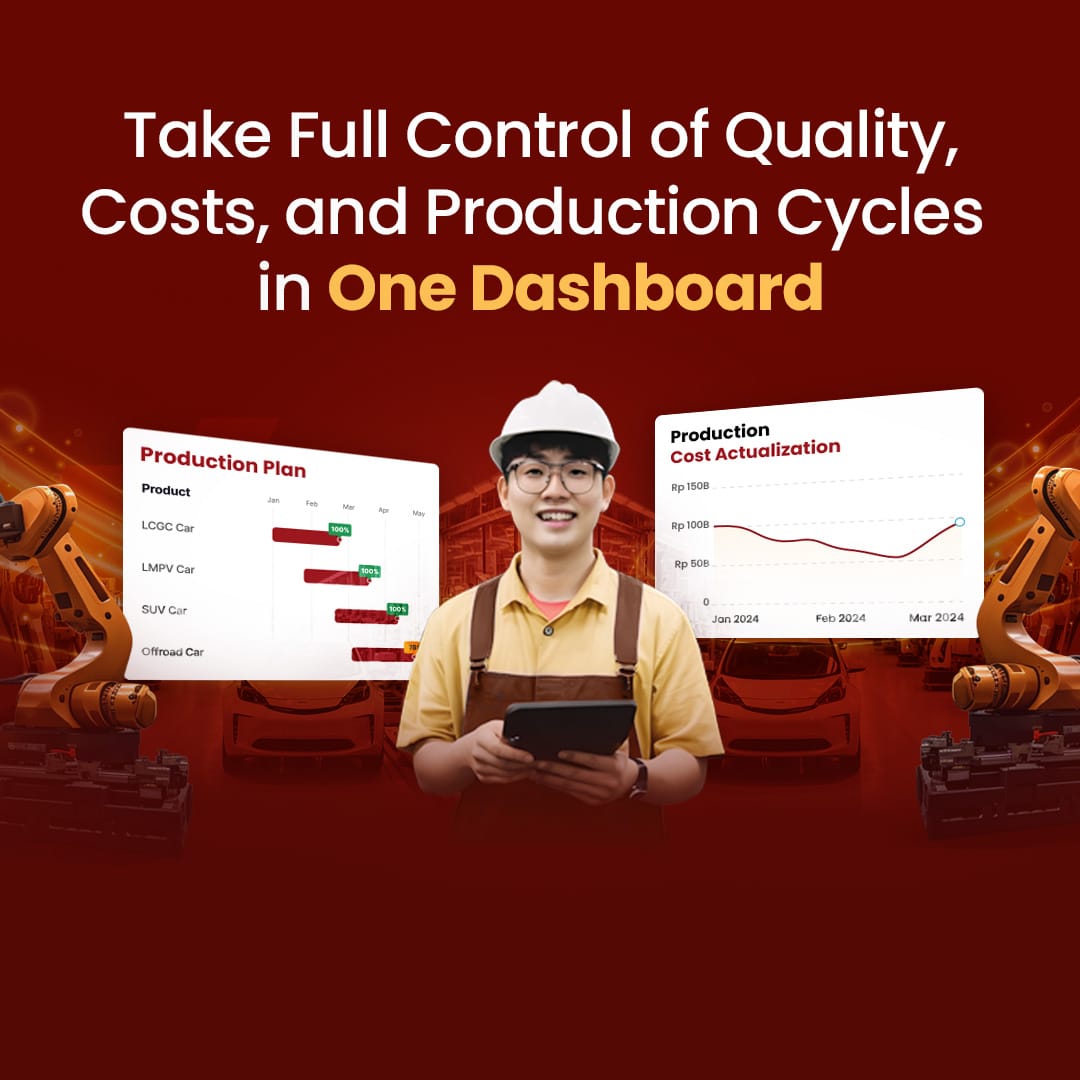Increasing production capacity is the main focus of many manufacturing companies. Many technologies help you increase productivity and speed up your business’s growth easily, for instance, the cloud-based ERP Software for Manufacturing.
However, thanks to the 4.0 industry, it is possible to produce more with existing facilities. With the integrated Manufacturing ERP Software, all areas in the factory such as front-end and back-end management are integrated and well-monitored.
Comprehensive manufacturing software helps the production process become more effective and allows you to increase its capacity. Here are the 5 simple ways to increase production capacity with the help of cloud technology.
Key Takeaways
|
Table of Content:
Table of Content
Adopt ERP System
ERP systems play a pivotal role in increasing production capacity by streamlining operations across an organization. These sophisticated systems integrate various functions like supply chain management, inventory control, and production planning into a cohesive unit.
By doing so, they eliminate data silos and ensure that information flows seamlessly across different departments. This integration allows for real-time data analysis and decision-making, enabling managers to identify bottlenecks and inefficiencies promptly.
Another significant advantage of ERP systems is their ability to enhance forecasting and planning capabilities. With advanced analytics and reporting tools, ERP systems can analyze historical data, current market trends, and customer demand patterns.
This analysis enables companies to make accurate forecasts and plan their production accordingly. Furthermore, better planning helps in maintaining optimal inventory levels, reducing waste, and minimizing storage costs, all of which contribute to a more efficient production process and increased capacity.
Lastly, ERP systems contribute to increasing production capacity by fostering a culture of continuous improvement and adaptability. They provide valuable insights into every aspect of the production process, from raw material procurement to final product delivery.
This comprehensive visibility allows companies to continuously monitor and improve their processes. Moreover, ERP systems are adaptable and can be updated to meet changing business needs and industry standards.
This flexibility ensures that companies remain competitive and can quickly adapt to new technologies or processes, further enhancing their production capacity and maintaining a sustainable growth trajectory.
Evaluate Your Internal Process
This strategy applies if you want optimal production both for the short and long term. Evaluating all areas in your factory with the right manufacturing software will help you find out what can be improved.
You can ask your employees to know their thoughts about the current internal process. Most of the time, their suggestions are practical and zeroed in on. Moreover, through the automated manufacturing system, you can immediately observe what consumes time and resources excessively. Then, consider the probability of cutting it out.
Also read: Factory Software to Improve Manufacturing Process
Reduce Machine Downtime
There are a lot of companies that still manage their business manually. If you are one of them, you must have found it difficult to find the causes of the machine downtime. With the most complete ERP system that is integrated with the machines, you can monitor its operation in real-time.
If it’s down, you will be notified automatically. Fast data access allows you to troubleshoot quickly and opt for the proper next action effectively. With less downtime frequency, you can optimize your output capacity.
Related article: The Effective Ways to Maintain Your Manufacturing Machines
Ask The Staff to Work Overtime
The most obvious and common strategy to meet rocketing demand is to ask your staff to work overtime. We can say that this is the shortcut to increasing production capacity because it’s easier to implement.
However, you need to note that this is not a suitable strategy for long-term optimization. Continually working overtime will put pressure on employees’ well-being. It will also significantly reduce their productivity and consequently will slow your production.
Evaluate Supplier Effectiveness
Generally, the problem that prohibits you from increasing production capacity lies in purchasing management. The first problem might come directly from your vendors. If you experience late shipment or they send you the wrong items, even the damaged ones, you should consider stopping purchasing from them.
Find the right suppliers that can accommodate you in any situation. The second problem might come from your management. Conventional ways of managing business might impede the purchasing process. It is probably from the lengthy approval process waiting time or not immediately returning damaged items.
Automate your procurement with the Purchasing Management System. You can manage approval processes from everywhere at any time. Moreover, some features allow you to have organized receiving management and seamless communication with the vendors. You can also manage backorders or product returns easily.
Also read: Features and Benefits of Procurement System
Conclusion
Increasing production capacity without adding more machines or staff is possible. To do that, you need to monitor your business operations in real time to optimize your production and manage your suppliers well.
The best ERP System for Manufacturing implementation simplifies these tasks. However, for a long-term effect, it’s better if you invest your money in new machines, expand your facilities, and hire more people. Get a free demo now!







































